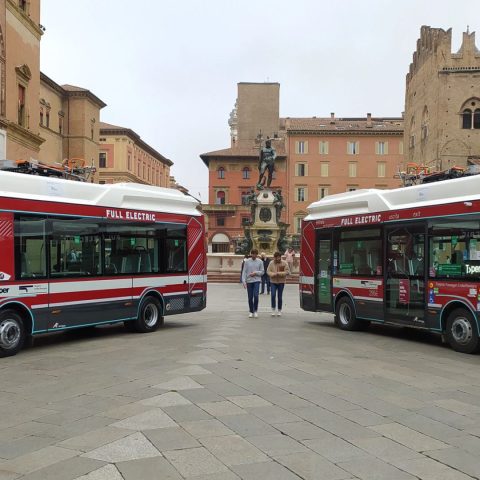Italian bus market shows +44% growth in the first half of 2024. E-buses? +83%
The Italian bus market is flourishing in 2024, building on the already strong trend observed in 2023, significantly boosted by Next Generation EU funding initiatives aimed at fleet renewal. According to the latest report from the manufacturers’ organization ANFIA, covered on Italian trade media Autobusweb, in the first half of 2024, a total of 3,483 […]

The Italian bus market is flourishing in 2024, building on the already strong trend observed in 2023, significantly boosted by Next Generation EU funding initiatives aimed at fleet renewal. According to the latest report from the manufacturers’ organization ANFIA, covered on Italian trade media Autobusweb, in the first half of 2024, a total of 3,483 bus registrations were achieved, a 44.6% increase compared to the same period in 2023.
And what is even striking, such figure is higher than the average yearly figure of bus and coach registration achieved in Italy in the last 15 years.
Moreover, a recent report highlighted that in 2023 nearly 2,500 zero-emission buses have been awarded in the country.
Italian bus market 2024: the growth of zero emission buses
All four main segments demonstrated positive trends: minibuses surged by 221.5%, tourist buses and midibuses increased by 61.9%, school buses grew by 34.7%, and public transport buses rose by 19.8%.
A significant highlight of H1 2024 is the increase in zero emission (ZE) bus registrations. The market share for gas-powered buses reached 21.5% from January to June 2024, up from 12.1% in the same period of 2023. Meanwhile, electric, diesel-electric hybrid, and methane-electric hybrid buses accounted for 21% of the market share, up from 15.8% in the first half of 2023. Electric bus registrations grew from 149 to 273: +83%.
Andrea Rampini, President of the Bus Section of ANFIA, commented on the current trends: “In the past 18 months, approximately 8,700 buses have been registered in Italy, a record number that will positively impact the average age of the bus fleet, currently around 10 years. The data from the first half of 2024 indicates a clear trend towards the adoption of more ecological buses. The significant growth in registrations of electric vehicles, with an increase of over 80%, is a clear sign that the industry is responding to the demand for more sustainable transport solutions. However, there has been a noticeable decline in purchase tenders in the first half of 2024, a concerning trend that could have negative repercussions in the coming months”. Such decrease is mainly due to the fact that tenders related to Next Generation EU fundings had to be concluded by end 2023.







